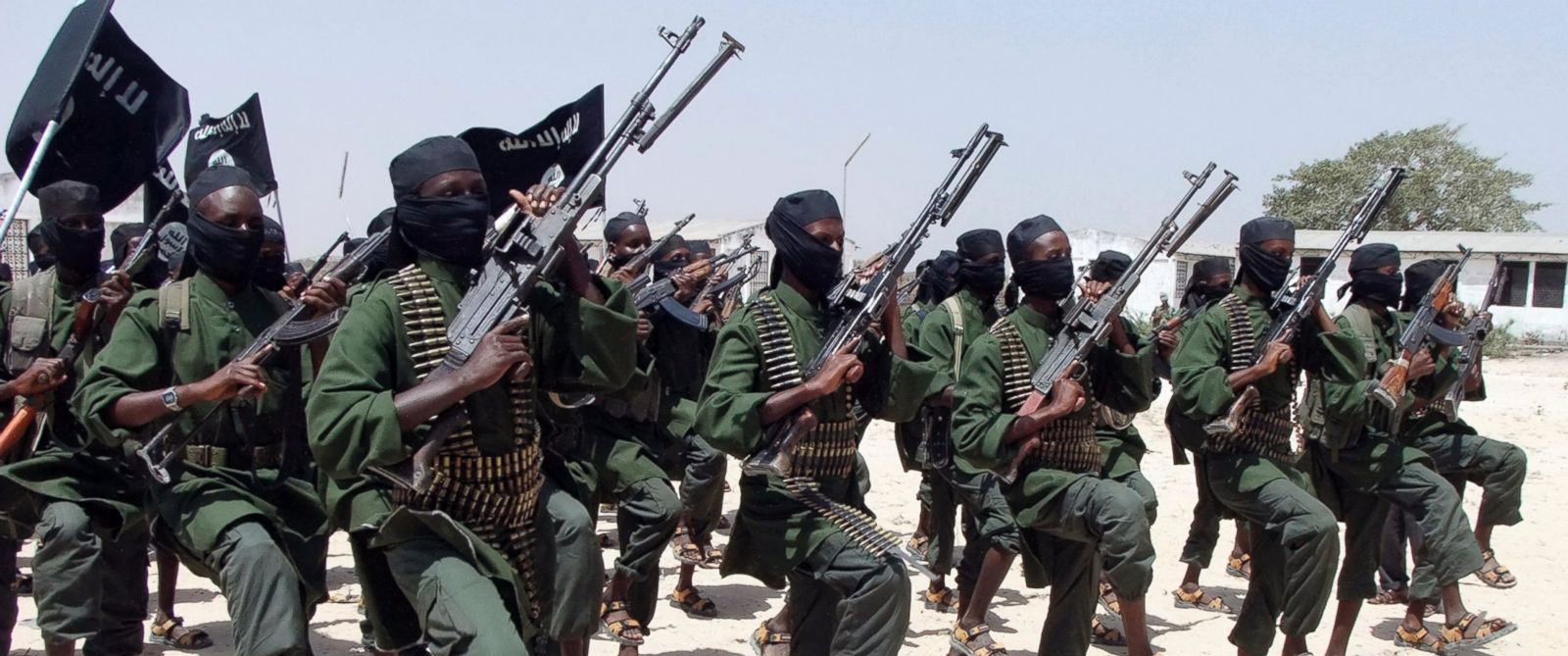
Al-Shabab is still capable of carrying out frequent devastating terrorist attacks
At least 17 people have been killed and more than a dozen wounded in a gun and bomb attack by the al-Shabab armed group on Sunday at a beachfront hotel in Somalia’s capital, officials and witnesses have said.
The siege of the hotel ended after a fierce three-hour gun battle between al-Shabab fighters and security forces which began with a suicide car bombing, government spokesman Ismael Mukhtar Omar told the dpa news agency.
https://twitter.com/AlbertBatlayeri/status/1295005697977905157?
Among the 12 victims were two government employees, three hotel security guards, four civilians and three unidentified people, police officer Ahmed Bashane was quoted as saying by the dpa.
Mukhtar told the Associated Press that all four assailants were killed by security forces.
The attack started in the afternoon with a powerful car bomb blast which blew off the security gates to the hotel. Then, gunmen ran inside and took hostages, mostly young men and women who were dining there.
Most guests of the four-storey seaside hotel were rescued, but 28 wounded people were taken to hospitals, according to local ambulance services head Abdulkadir Abdirahman Adan.
Witnesses confirmed the attack began with a heavy explosion and reported that people were running from the area as gunfire could be heard from the hotel, which is frequented by government officials, journalists and business people.
Al-Shabab said they carried out the attack, according to a statement translated by the SITE Intelligence Group. The statement claimed its fighters “took control over the hotel” in the “martyrdom-seeking operation”. LINK
Somalia plunged into chaos after the 1991 overthrow of then-President Siad Barre’s military regime, leading to years of clan warfare before the Union of Islamic Courts (UIC) emerged and began to restore order in many parts of the troubled country. The UIC was a group of Sharia courts that united to form a rival administration to the Transitional Federal Government (TFG) of Somalia, with Sharif Sheikh Ahmed as their head.
Until the end of 2006, the UIC controlled most of southern Somalia and the vast majority of its population, including most major cities and the capital Mogadishu. The confederation of Islamic courts eventually began to consolidate into a form of ‘proto-government’, but that ended abruptly when Ethiopian forces invaded in late 2006. Following the Ethiopian invasion and ousting of the Union of Islamic Courts, the militant group al-Shabab gained rapidly in strength and began to extend its authority and to administer an extremist version of sharia justice in the regions under its control.
Some members of the UIC went into exile in Eritrea and Djibouti, where they formed the Alliance for the Re-Liberation of Somalia in September 2007. In the two years following the UIC’s ouster from Mogadishu, the hardline Islamists regrouped in the south and west of Somalia, taking over territory formerly controlled by both the TFG and UIC. In January 2009, a reconciliation and power-sharing deal was brokered between the Transitional Federal Government (TFG) and the Djibouti contingent from the former Islamic Courts Union which resulted in the expansion of the Parliament and the election of Sheik Sharif Ahmed, former leader of the UIC, as President of the Transitional Federal Government.
In early 2009, Somalia’s government announced that it was considering the establishment of sharia for the entire country, as called for by pro-government Islamic leaders. However, al-Shabab and other insurgents contend that the government, a moderate Western-Islamic hybrid, is unfit to implement Islamic law. LINK
There are reports of foreign fighters travelling to Somalia to fight with al-Shabab, arriving from neighbouring countries as well as from the US and Europe. The group, which claims to be linked with Al Qaida, is believed to have between 7,000 and 9,000 fighters.
Al-Shabab is reported as advocating the Saudi-inspired Wahhabi version of Islam, while most Somalis are Sufis, and the group has imposed an extremist version of Sharia in areas under its control.
MORE ON THE TOPIC:




Islam is Cancer